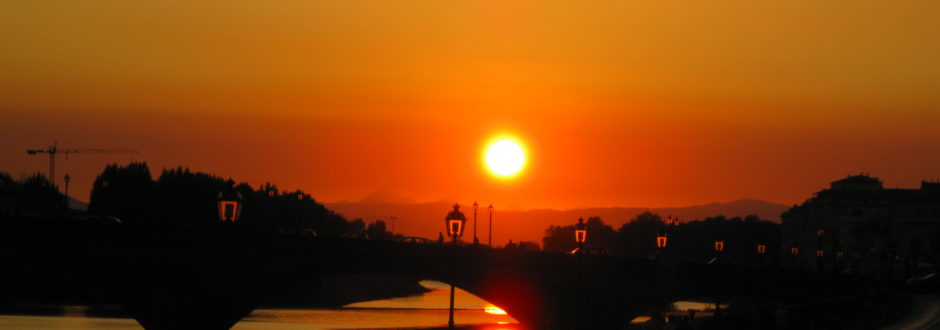In the 13th century, in the midst of a Christian renewal inspired by the founding of various Orders throughout Europe, a group of Franciscan brothers established a church in East Lothian, one of the 32 council areas of Scotland that borders the city of Edinburgh.
“We are told that it was a church of wonderful beauty, the choir from its elegance and clearness of light becoming known as ‘the Lamp of the Lothians’”, writes Elizabeth Hamilton in By Lamplight, an anthology of poetry and literature I stumbled upon in The Canongate Kirk (1688), the church Queen Elizabeth worships in when residing at Holyrood Palace in Edinburgh.
She continues:
“The name, Lamp of the Lothians, stood for a centre of spiritual enlightenment. The people who gathered in medieval churches looked and listened, their souls restored by noble architecture, singing choirs, and the glowing colours of paintings and murals. As they received the consolations of word and sacrament, every faculty of the aesthetic sense was brought into play.”
It is perhaps fitting that the anthology from which this text comes is named in honor of this title, for the selected passages lift and inspire, nourishing the soul and awakening us to the light that dwells within.
Compiled by two friends, Elizabeth Hamilton and Charles Robertson, By Lamplight is the result of their shared interest in literature and spirituality, which led them to exchange inspiring passages with each other over the course of several years.
Spanning 16 themes from light and wisdom to peace and happiness, the collection contains selections drawn from a wide range of literature. It is the incorporation of local history, however, that makes it particularly special.
As Hamilton writes in the foreword:
“This anthology comes from lowland Scotland: some of the lyrics of Dunbar and Burns, for example, may be almost incomprehensible to those who are unfamiliar with the Lowland Scots speech, but they are not inaccessible.”
(Note: William Dunbar, 1459-1520, and Robert Burns, 1759-1796, were Scottish poets)
I’ve chosen a few selected passages in the hope that they might ignite your own inner light. As George Fox (1624-1691), an English dissenter and Quaker who is quoted in the anthology, once said:
“The Inward Light is the light of Christ. It is a universal Light, which can be known by anyone, of either sex, of whatever religion.”

The Inward Sphere
The Hero is he who lives in the inward sphere of things, in the
True, Divine and Eternal, which exists always unseen to most,
Under the Temporary, Trivial: his being is in that; he declares that
Abroad, by act or speech as it may be, in declaring himself
Abroad. His life…is a piece of the everlasting heart of Nature
Herself: all men’s life is, – but the weak many know not the fact,
And are untrue to it, in most times; the strong few are strong,
Heroic, perennial, because it cannot be hidden from them.
–Thomas Carlyle, 1795-1881
Perfect Day in the Dead of Night
Abide with us, O most blessed and merciful Saviour,
For it is toward evening and the day is far spent.
As long as Thou art present with us, we are in the light.
When Thou art present, all is brightness, all is sweetness.
We discourse with Thee, live with Thee and lie down with Thee.
Abide then with us, O Thou whom our soul loveth;
Thou Son of righteousness with healing under Thy wings,
Arise in our hearts.
Make Thy light then to shine in darkness,
As a perfect day in the dead of night.
–Henry Vaughan, 1622-1695
The Conductor
Here is our little planet, chiefly occupied, to our view, in rushing round the sun; but perhaps found from another angle to fill quite another part in the cosmic scheme. And on this apparently unimportant speck, wandering among systems of suns, the appearance of life and its slow development and ever-increasing sensitization; the emerging of pain and of pleasure; and presently man with his growing capacity for self-affirmation and self-sacrifice, for rapture and for grief. Love with its unearthly happiness, unmeasured devotion, and limitless pain; all the ecstasy, all the anguish that we extract from the rhythm of life and death. It is much, really, for one planet to bring to birth. And presently another music, which some – not many perhaps yet, in comparison with its population – are able to hear. The music of a more inward life, a sort of fugue in which the eternal and temporal are mingled; and here and there some, already, who respond to it. Those who hear it would not all agree that it is something different in kind from the rhythm of life and death. And in their surrender to this – to which, as they feel sure, the physical order too is really keeping time – they taste a larger life; more universal, more divine. As Plotinus said, they are looking at the Conductor in the midst; and, keeping time with Him, find the fulfillment both of their striving and of their peace.
–Evelyn Underhill (Mrs Stuart Moore) 1875-1941

My Salad Days
When I was twenty one,
I pledged my life to the service of my people
And I asked God’s help to make good that vow.
Although that vow was made in my salad days
When I was green in judgment,
I do not regret or retract one word of it.
–Her Majesty The Queen, b. 1926
The Everlasting Arms
In the course of human suffering
The time comes
For plunging into the depths of inexpressible pain,…
When human aid is of no avail:
Then, more than ever before, down below conscious understanding,
There in the unplumbed depth he waits
With open arms to receive the tortured being,
While he infuses into the soul and mind
The absolute trust which feeds the inmost consciousness
With the knowledge that all is well;
And with divine knowledge comes renewed strength
To endure and lie still in the everlasting arms.
–Edith Barfoot


